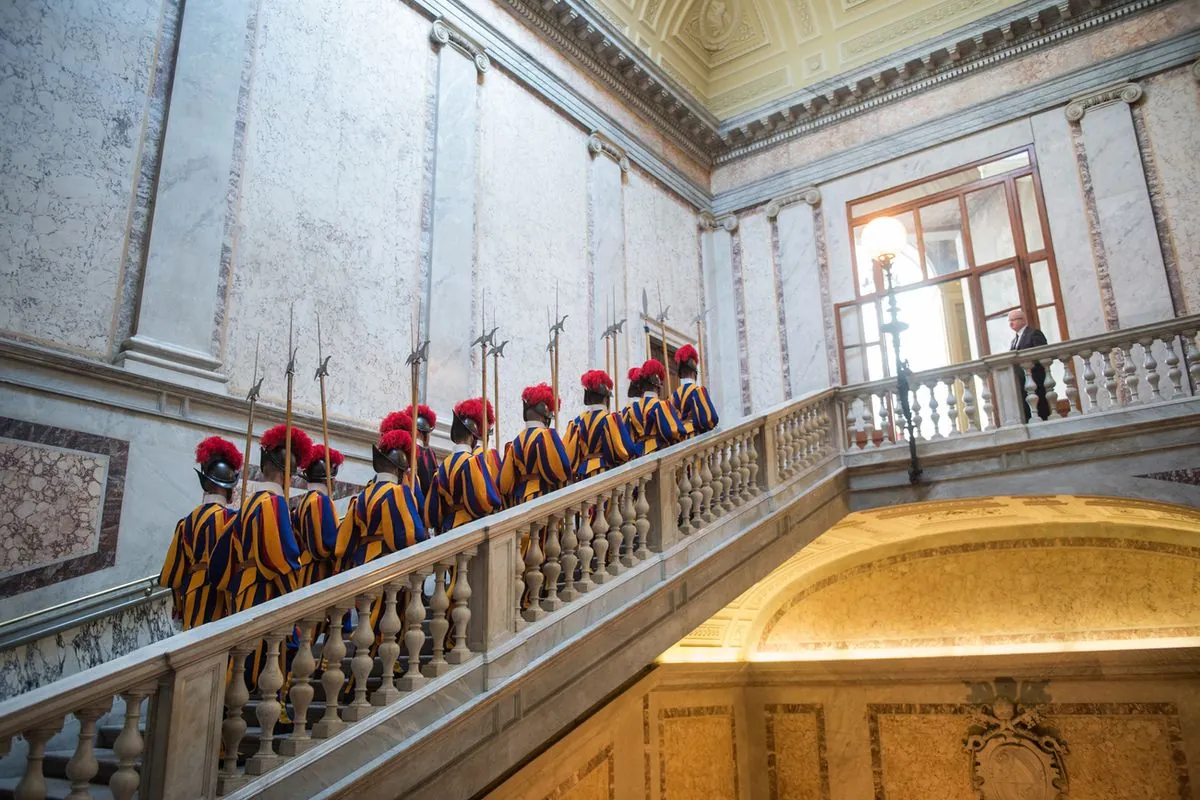Vatican Bank's Marriage Rule Sparks Controversy: "Romeo and Juliet" Case
Vatican Bank's anti-nepotism policy forces newlyweds to choose between marriage and career. The controversial rule, aimed at preventing conflicts of interest, has ignited debate within the Holy See.

The Vatican Bank, officially known as the Institute for the Works of Religion (IOR), has recently found itself at the center of controversy due to a stringent anti-nepotism policy. This unique financial institution, established in 1942 by Pope Pius XII, is facing scrutiny over a regulation that requires one spouse to resign if two employees marry.
A recently wedded couple, dubbed "Romeo and Juliet" by the Catholic press, has become the focal point of this debate. The pair, who exchanged vows on August 31, 2024, in Fregene, a coastal town near Rome, now face an ultimatum: one must voluntarily resign within 30 days of their marriage or both risk losing their positions at the bank.
The IOR, which manages funds for the Holy See and various Catholic organizations worldwide, defends the policy as a measure to ensure equal treatment and prevent conflicts of interest. With a workforce of just over 100 employees in a single location, the bank argues that this rule is crucial for maintaining professional integrity and public trust.

However, the regulation has sparked outrage within Vatican City, the world's smallest sovereign state with an area of merely 0.44 km². Critics argue that the policy undermines the sanctity of marriage, a fundamental sacrament in the Catholic faith. The ADLV, an association representing lay employees, has expressed solidarity with the couple and is seeking mediation with the bank.
"How is it possible that an internal regulation can supersede the sacrament?"
The controversy highlights the delicate balance between professional ethics and personal life within the unique context of the Vatican. The IOR, which has been striving for greater transparency since Pope Francis initiated reforms in 2013, now faces a new challenge in reconciling its administrative policies with Catholic values.
Interestingly, the Vatican Bank is known for its distinctive features, such as ATMs offering Latin as a language option – the only ones in the world to do so. This blend of ancient tradition and modern finance underscores the complex nature of the institution.
The fate of the newlyweds remains uncertain. While some hope for papal intervention, Pope Francis is currently on an extensive apostolic visit and is not expected to return to Rome until September 13, 2024. Upon his return, the 87-year-old pontiff may have more pressing matters to address.
As this situation unfolds, it brings attention to the ongoing reforms within the Vatican Bank. Since 2014, the bank has been publishing annual reports, marking a significant step towards transparency. However, it's worth noting that the IOR is not a member of any international banking regulatory body and does not provide conventional banking services such as loans or mortgages.
The "Romeo and Juliet" case serves as a reminder of the unique challenges faced by institutions operating within the Vatican City State. As the world watches, the resolution of this controversy may have far-reaching implications for the future of employment policies within the Holy See.


































